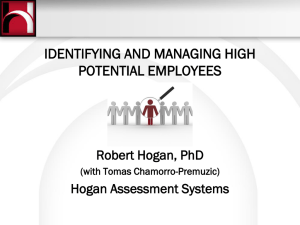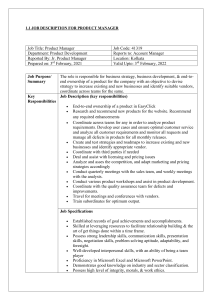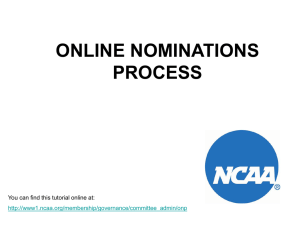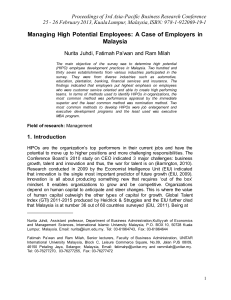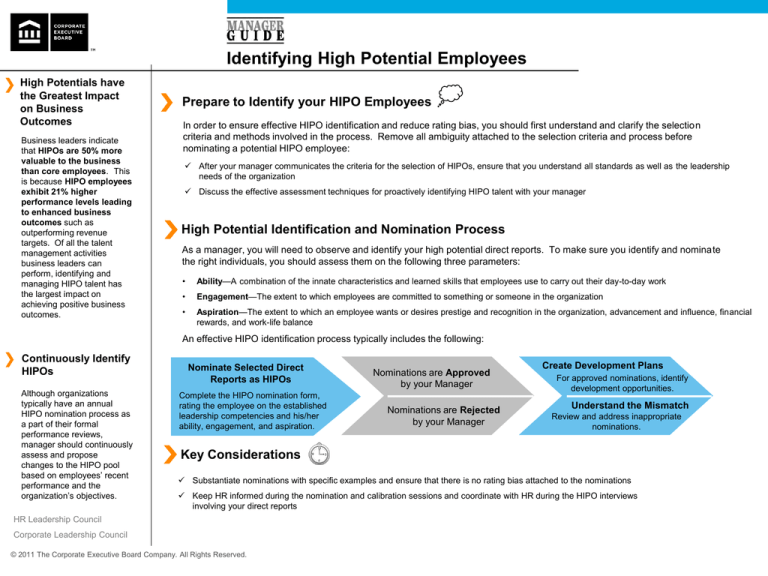
Identifying High Potential Employees
High Potentials have
the Greatest Impact
on Business
Outcomes
Business leaders indicate
that HIPOs are 50% more
valuable to the business
than core employees. This
is because HIPO employees
exhibit 21% higher
performance levels leading
to enhanced business
outcomes such as
outperforming revenue
targets. Of all the talent
management activities
business leaders can
perform, identifying and
managing HIPO talent has
the largest impact on
achieving positive business
outcomes.
Prepare to Identify your HIPO Employees
In order to ensure effective HIPO identification and reduce rating bias, you should first understand and clarify the selection
criteria and methods involved in the process. Remove all ambiguity attached to the selection criteria and process before
nominating a potential HIPO employee:
After your manager communicates the criteria for the selection of HIPOs, ensure that you understand all standards as well as the leadership
needs of the organization
Discuss the effective assessment techniques for proactively identifying HIPO talent with your manager
High Potential Identification and Nomination Process
As a manager, you will need to observe and identify your high potential direct reports. To make sure you identify and nominate
the right individuals, you should assess them on the following three parameters:
•
Ability—A combination of the innate characteristics and learned skills that employees use to carry out their day-to-day work
•
Engagement—The extent to which employees are committed to something or someone in the organization
•
Aspiration—The extent to which an employee wants or desires prestige and recognition in the organization, advancement and influence, financial
rewards, and work-life balance
An effective HIPO identification process typically includes the following:
Continuously Identify
HIPOs
Although organizations
typically have an annual
HIPO nomination process as
a part of their formal
performance reviews,
manager should continuously
assess and propose
changes to the HIPO pool
based on employees’ recent
performance and the
organization’s objectives.
Nominate Selected Direct
Reports as HIPOs
Complete the HIPO nomination form,
rating the employee on the established
leadership competencies and his/her
ability, engagement, and aspiration.
Nominations are Approved
by your Manager
Nominations are Rejected
by your Manager
Create Development Plans
For approved nominations, identify
development opportunities.
Understand the Mismatch
Review and address inappropriate
nominations.
Key Considerations
Substantiate nominations with specific examples and ensure that there is no rating bias attached to the nominations
Keep HR informed during the nomination and calibration sessions and coordinate with HR during the HIPO interviews
involving your direct reports
HR Leadership Council
Corporate Leadership Council
© 2011 The Corporate Executive Board Company. All Rights Reserved.
Identifying High Potential Employees
Checklist to Help Identify and Nominate HIPOs
Use these characteristics to identify HIPOs and nominate them for your organization’s high-potential employee development program.
Criteria to Distinguish HIPO Employees
ABILITY
Greater capability to inspire others
Competent at reading others and responding appropriately
Strategic thinker
Superior skills to work with unclear, contradictory, and inconsistent information
Greater proficiency at articulating and defending ideas
Greater facility to manage difficult employees
Criteria applicable to junior employees:
Capable of distilling complex materials
Takes burden off managers
ENGAGEMENT
Speaks highly of the organization
Organization means a great deal to the employee
Proud to work for the organization
Thinks organization is the best place to develop skills
Thinks organization to be the best for career
Helps coworkers with heavy workloads and volunteers for additional duties
Does not think staying with the organization is a matter of necessity
ASPIRATION
HR Leadership Council
Desires to rise to a senior position
Criteria applicable to junior employees:
Cares less about recognition outside organization
Desires to interact with important clients
Desires to be recognized as a great manager and an expert
Desires to have influence on key decisions
Shows that he/she is ready to handle an increase in responsibilities
Desires to stick to core competencies
Corporate Leadership Council
© 2011 The Corporate Executive Board Company. All Rights Reserved.

